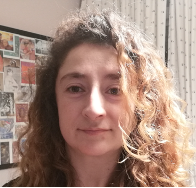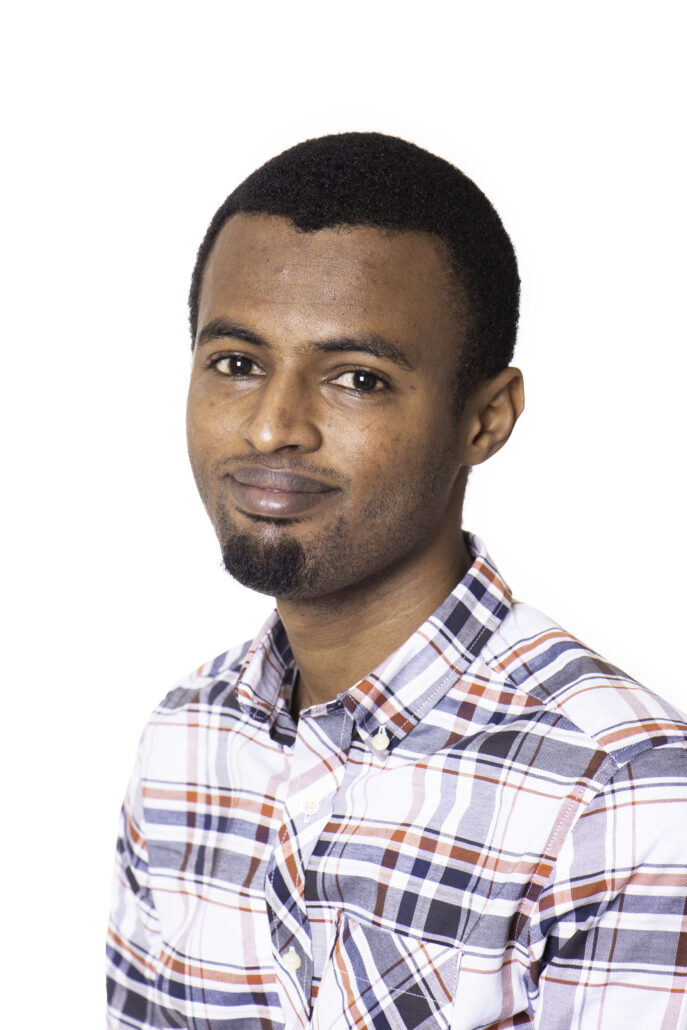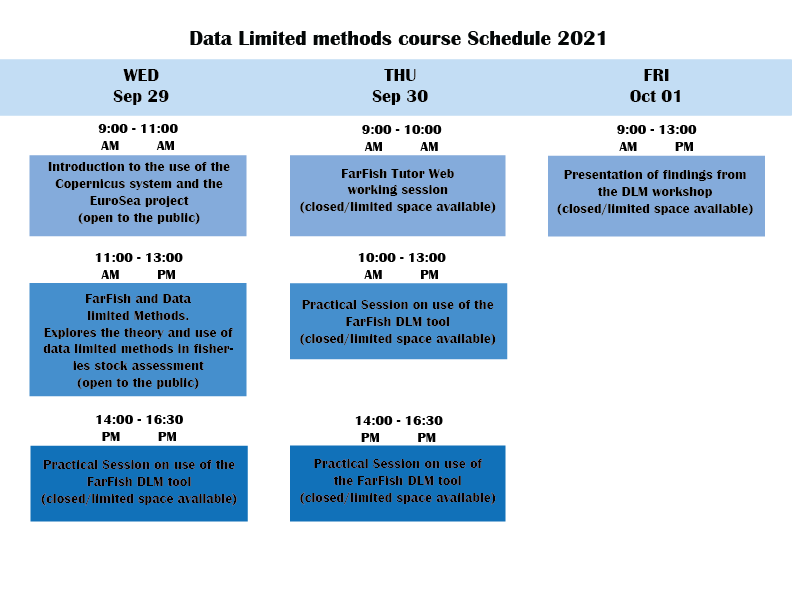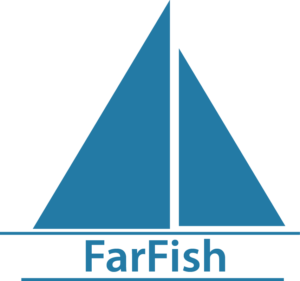
The FarFish Data Limited Methods Course took place on Sept 29th – Oct 1st 2021.
The aim was to explore some methods used for stock assessment when data available is very limited. The theory behind and their implementation will be explained, as well as their advantages and caveats. An emphasis on data input and results expected regarding establishing some reference points for sustainable exploitation was also provided. The skills learned from this course will be directly applicable for exploratory stock assessments for fisheries of the countries of the participants.
Registration for this course has closed.
Instructors:

Margarita Rincon is a senior scientist at the Spanish Oceanography Institute. She is a mathematician researching the sustainability of fisheries resources: Modeling the dynamics of fish populations incorporating the effect of fishing and the environment, stock assessment, development of tools for decision making and analysis of management strategies from an ecological and socio-economic point of view. Dr. Rincon is an official national member of the ICES group of evaluation WGHANSA (Working Group on Southern Horse Mackerel, Anchovy, and Sardine). She has conducted scientific advisory tasks collaborating with the Spanish Oceanographic Institute, and developed the integrated mathematical-statistical model that is being used as a reference (in June 2018) for the scientific advice of the anchovy stock in the Gulf of Cádiz. Margarita has a degree in mathematics from the National University of Colombia (Bogotá, Colombia, 2006), a PhD in Physics and Mathematics from the University of Granada (2015) and worked as a Postdoctoral Researcher at the National Spanish Research Center (CSIC).

Kamarel Ba is a post-doctoral researcher at ISRA/CRODT in Senegal. Kamarel is currently working with two international projects: the tropical tunas’ tagging programme in the Atlantic Ocean in collaboration with ICCAT organization and the a project investigating the main demersal resources shared with Senegal’s neighboring countries. Using the tropical tunas’ tagging database, Kamarel analyzed the movements of the species, estimated the distances covered and the number of days at liberty of tagged fish. For the demersal resources, a sampling protocol were implemented to collect measurements of fish (total length, body weight, gonad weight), tissues samples (for genetic analyses) and otoliths samples. Kamarel is currently a fellow of the GRÓ Fisheries Training Programme in Iceland, where his research work focuses on data-limited methods and their application to black hakes stock shared by several countries (from Morocco to Senegal).

Diego Macias Moy is a marine scientist specialized in the development and application of numerical approaches to building ‘digital twins’ of marine ecosystems. He worked at the European Commission’s Joint Research Centre for 7 years before moving back to his home country, Spain, as senior researcher for the Spanish National Research Council (CSIC), Institute of Marine Sciences of Andalusia (ICMAN). Diego has published over 80 papers in international scientific journals and has assisted EU policymakers in making science-based decisions in the context of legislation, such as the Marine Strategy Framework Directive (MSFD), the Common Fisheries Policy or the Plastics Directive. He has tested different policy options in the digital twins to assess their derived impacts on marine ecosystems. Quantitative analyses of those impacts have been used to select the best options to be applied in the real world.
The schedule for the course is outlined in the table below:



